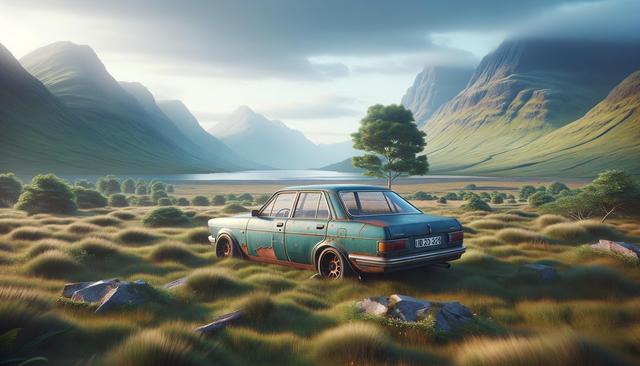
What You Need to Know Before Selling or Buying a Clunker Car
Understanding What Makes a Car a ‘Clunker’
The term ‘clunker’ is often used to describe a car that’s seen better days. Typically, this refers to vehicles that are old, have high mileage, or suffer from significant mechanical issues. While the word might carry a negative connotation, clunker cars still hold value, especially for specific buyers. Some may purchase them for parts, others for restoration projects, and some simply for temporary use. Before labeling a vehicle as a clunker, it’s essential to assess its actual condition and potential utility. This includes checking engine performance, body condition, and whether the car is still roadworthy.
In many cases, what one person sees as a clunker may be a valuable project for someone else. For instance, hobbyists and mechanics often seek out such vehicles for parts or practice. Others may be looking for budget-friendly transportation and are willing to take on minor repairs. Understanding what makes a car a clunker is the first step in determining its marketability and potential value.
Reasons to Sell Your Clunker Car
There are many valid reasons to consider selling a clunker car. Whether it’s taking up space in your garage or costing too much in repairs, letting go of a vehicle that no longer meets your needs can be a smart decision. Some common motivations include:
- High maintenance and repair costs
- Inability to pass emissions or safety inspections
- Lack of use or a replacement vehicle already in service
- Desire to reclaim space or avoid storage fees
Additionally, there are organizations and buyers who specialize in purchasing clunker cars. These buyers often offer convenient pickup and fair compensation based on the vehicle’s salvageable parts or scrap metal value. Instead of letting your car deteriorate further, selling it can provide both financial and practical benefits.
How to Prepare Your Clunker for Sale
Even if a car is no longer running smoothly, preparing it for sale can increase its appeal and value. Start by gathering all necessary documents, including the title, maintenance records, and any receipts for recent repairs. This builds trust with potential buyers and shows transparency. Next, clean the vehicle inside and out. A clean, presentable car—regardless of its mechanical status—can make a significant difference in how it’s perceived.
Consider the following steps to get your clunker car ready for sale:
- Remove all personal belongings and trash
- Wash and vacuum the vehicle
- Check and fill basic fluids if possible
- Take clear photos from multiple angles
- Write a detailed and honest description
Presentation matters, even for older, less functional vehicles. A well-prepared listing can attract more interest and potentially higher offers.
Where to Sell a Clunker Car
Once your clunker is ready, the next step is choosing where to sell it. There are several options depending on the condition of the car and your selling preferences. Online marketplaces allow you to reach a broad audience, while local junkyards and scrap dealers offer quick, hassle-free transactions. Each option has its pros and cons.
- Online Listings: Ideal for reaching individual buyers or hobbyists
- Scrap Yards: Great for quick sales, especially if the car isn’t running
- Donation Programs: May offer tax deductions and free towing
- Auto Auctions: Suitable for rare or classic models that need restoration
Research your local options and compare offers before making a decision. Some buyers may provide added services like towing or same-day payment, which can make the process even smoother.
What to Expect After the Sale
After successfully selling your clunker car, there are a few administrative steps to finalize the process. Make sure to transfer the title properly to avoid future liabilities. Notify your insurance company and cancel your policy for the vehicle. If you sold the car to a business or service, request a receipt or confirmation of the transaction.
Depending on your state’s regulations, you may also need to notify the DMV or submit a release of liability form. Taking these steps ensures that you are no longer responsible for the vehicle once it’s out of your hands. Additionally, if you sold the car for parts or scrap, consider checking in after a few weeks to ensure everything was processed as agreed.